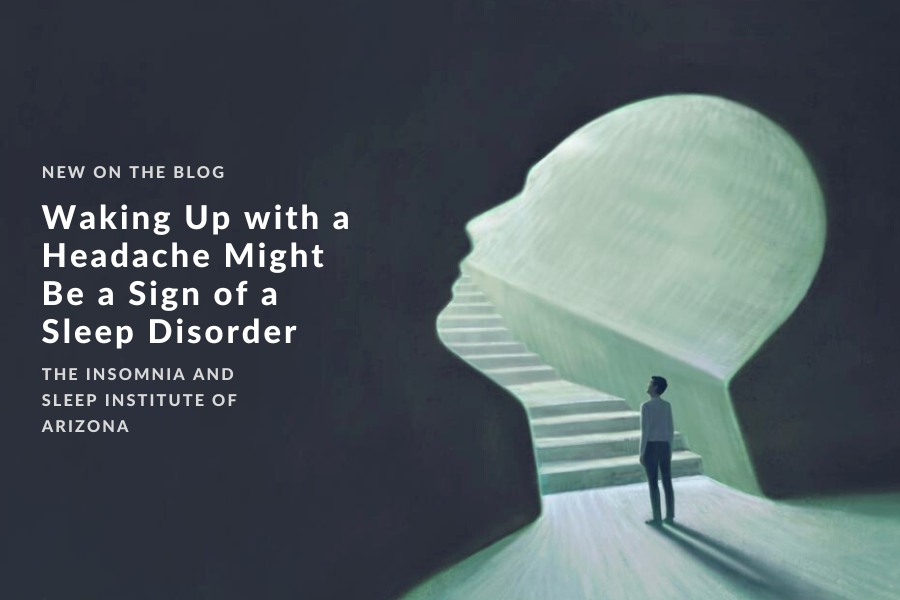There are many signs and symptoms of sleep disorders, and many of them aren’t as obvious as you might think.
Headaches and sleep disorders are inherently intertwined. A recent study, published via the Cleveland Clinic, suggests that sleep might actually trigger headaches—and waking up with this kind of pain.
Waking up with frequent headaches can signal sleep issues. Consider scheduling a consultation to explore better rest solutions.
Just like there are many types of sleep disorders, there are also various types of headaches. Some headaches are more common in the mornings than others.
Determining what kind of headache you’re struggling with should only be diagnosed by a physician, and knowing the type of headache can help experts identify potential linked sleep disorders.
One of the most common type of headaches experienced in the morning is a migraine. These headaches can vary in severity and can even be debilitating. Migraines usually present as an intense sort of throbbing at one part of the head (unilateral). Dizziness and nausea often accompany migraines.
There are also tension-type headaches. These feel like a squeezing of the head and typically present across the whole head. Cluster headaches are also common in the mornings.
They usually appear on just one side of the head, leave, and then come back stronger than before. Finally, there are hypnic headaches. These are rare, but are also called “alarm clock” headaches since they happen during deep sleep and can wake you up.
The Why Behind Headaches
Determining the kind of headache you’re experiencing is the first step. Next is figuring out the cause. Headaches can be caused by a myriad of factors, but insomnia and/or other sleep problems are a major cause.
If you don’t get enough quality sleep, you’re simply more likely to develop tension headaches. Of course, having headaches can make it difficult to sleep, so this has a bi-directional relationship.
Even if headaches aren’t directly caused by a sleep disorder, sleep disorders can amplify headaches. For example, it is estimated that about half of people with sleep apnea also get headaches.
Snoring is the most common symptom linked with sleep apnea, but “sleep apnea headaches” are also a common complaint. This kind of headache is often described as a pressing type of pain on one or both sides of the head. The good news is that, often, when sleep apnea is treated, headaches also go away or lessen in intensity and/or frequency.
Maybe Your Head Really is Exploding
There is also a disorder dubbed “exploding head syndrome” and, fortunately, it’s not as bad as it sounds. However, it’s a type of sleep disorder that presents as a person hearing a loud (imaginary) explosion or crash during the in-between moments of sleep and waking up.
It is usually painless, although some people do report feeling a brief stabbing pain. Oversleeping can also cause headaches. It’s important to keep the same sleep schedule, and oversleeping can interrupt the circadian rhythm, which can trigger headaches.
Teeth grinding unsurprisingly also causes headaches. It creates tension, which in turn creates a headache (which is often a migraine). Finally, there are hangovers. Everyone responds to hangovers differently and it changes with age. Alcohol dehydrates the body, and it’s the dehydration that can cause headaches.
If you want to avoid morning headaches, two of the best things you can do is avoid drinking alcohol to excess and get on a good sleep schedule. If you do suspect you have a sleep disorder, working with a sleep expert might be key to tackling both.
Sleep disorders can affect anyone of any age, which is why we work with patients as young as two years old. The effects of sleep disorders can vary widely, and headaches are just one potential factor.
At The Insomnia and Sleep Institute, we offer unprecedented staffing levels and your initial consultation is with a sleep expert who can diagnose sleep disorders.
To learn more or schedule your consultation, contact us today by calling the office during business hours or completing the online contact form.





